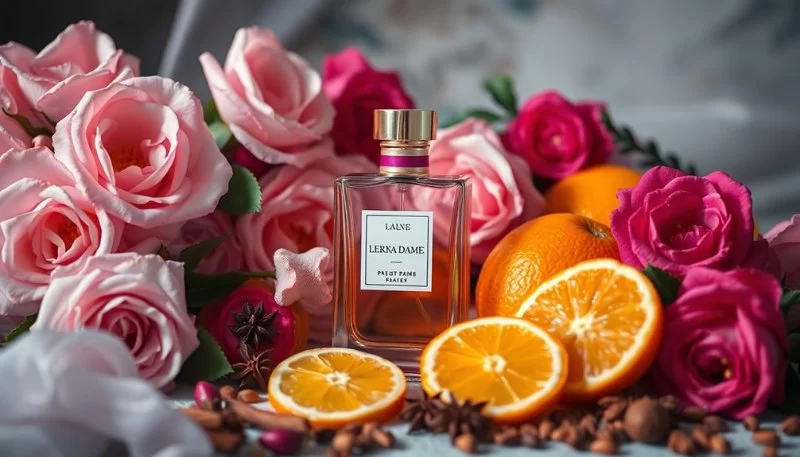- 1-what-does-licorice-smell-like-in-perfume
- 2-the-chemistry-and-origins-of-licorice-in-fragrance
- 3-how-perfumers-use-licorice-notes-in-modern-scents
- 4-scent-characteristics-and-perception-in-perfume
- 5-famous-perfumes-that-feature-licorice
- 6-expert-tips-and-recommendations-from-scent-snob
1. What Does Licorice Smell Like in Perfume
When people ask, “What does licorice smell like in perfume?”, the answer is far more nuanced than one might think. Licorice, derived from the root of the Glycyrrhiza glabra plant, brings a darkly sweet, spicy, and slightly herbal aroma to fragrances. It sits somewhere between sugary candy and earthy anise, blending depth and sensuality with just a touch of nostalgia.
In perfumery, licorice is not just about sweetness—it evokes a mysterious, bittersweet warmth that lingers. Depending on the composition, it can feel playful, exotic, or even smoky. It’s a note that adds intrigue, often used to give character to both masculine and feminine fragrances.
If you’re curious about exploring perfumes that master this alluring note, Scent Snob offers expert-curated recommendations to help you find fragrances that balance licorice’s complex sweetness with sophistication.
2. The Chemistry and Origins of Licorice in Fragrance
2.1 Natural vs Synthetic Licorice Notes
In traditional perfumery, licorice is rarely extracted directly from the root itself. Instead, perfumers use aroma molecules like anethole—also found in anise and fennel—to recreate that distinctive sweet-spicy profile. These compounds bring consistency and longevity to modern fragrances.
2.2 Cultural and Historical Roots
Licorice has been cherished for centuries, from ancient Egypt to Asia, for its medicinal and aromatic qualities. Its unmistakable aroma has long symbolized healing and indulgence. When introduced into fine perfumery, it carried that same duality—comfort and temptation.
2.3 How Chemistry Shapes Emotion
Because licorice naturally contains sweet and bitter facets, it triggers both pleasure and curiosity in our scent receptors. That’s why it can simultaneously feel cozy and provocative. This dual nature makes it an essential building block for complex fragrance compositions.
3. How Perfumers Use Licorice Notes in Modern Scents
3.1 As a Gourmand Accent
In sweet or dessert-inspired perfumes, licorice deepens the gourmand experience. When paired with vanilla, tonka bean, or caramel, it adds a sultry sophistication that prevents the fragrance from feeling overly sugary. The result is a scent that’s indulgent yet refined.
3.2 As a Spicy or Smoky Counterpoint
In more unisex or masculine compositions, perfumers often blend licorice with spices like clove, cinnamon, or pepper. The result is a darker, aromatic twist—ideal for fall and winter fragrances that wrap the wearer in warmth. Sometimes, a touch of tobacco or leather amplifies its mysterious side.
3.3 As a Bridge Between Notes
Licorice acts as a natural connector between contrasting elements. It can harmonize floral heart notes with woody bases, creating balance in a complex formula. This versatility explains why many perfumers consider it an “underrated secret weapon.”
4. Scent Characteristics and Perception in Perfume
To the untrained nose, licorice may simply smell “sweet.” But for perfume enthusiasts, it’s a multi-dimensional note that evolves as it warms on the skin. At first sniff, it’s bright and candy-like. Then it transitions into a soft, smoky sweetness with hints of spice and wood.
4.1 Sweet and Spicy Duality
Licorice manages to be both comforting and daring. This makes it popular in evening perfumes and those meant to express confidence or seduction. It has a natural “signature” quality—people often remember a perfume with licorice long after smelling it.
4.2 Influence of Skin Chemistry
Because of its reactive nature, licorice can smell slightly different on every person. On warmer skin tones, it leans toward caramel and spice; on cooler tones, the herbal notes become more pronounced. That’s part of what makes discovering your ideal licorice-based perfume so personal and exciting.
5. Famous Perfumes That Feature Licorice
5.1 Guerlain La Petite Robe Noire
One of the most iconic modern examples, this perfume uses licorice to weave together cherry, almond, and rose. It feels elegant yet playful—proof that licorice can elevate a fruity fragrance into something memorable.
5.2 Lolita Lempicka Eau de Parfum
This cult classic showcases licorice as a central theme, combining it with violet, iris, and tonka bean. The result is whimsical and dreamy—a perfume that smells like fairy tales with a hint of mystery.
5.3 Jean Paul Gaultier Classique
Here, licorice appears as an accent beneath orange blossom and vanilla. It adds depth, giving the floral bouquet a sensual and slightly exotic twist.
6. Expert Tips and Recommendations from Scent Snob
6.1 Choosing Your Perfect Licorice Fragrance
If you enjoy sweet and spicy aromas, look for perfumes where licorice is blended with vanilla or amber. For a bolder impression, explore those mixed with woods, patchouli, or incense. Fragrance lovers seeking a lighter, fresher vibe might enjoy anise-forward perfumes that carry licorice’s brightness without the heaviness.
6.2 Layering and Wearing Tips
Licorice pairs beautifully with warm or powdery scents. Try layering it with creamy florals or smoky bases for depth. Because of its complexity, it’s best suited for cool weather or evening wear, when its sweetness lingers pleasantly.
6.3 Explore with Scent Snob
To discover curated perfumes that feature this intriguing note, visit Scent Snob. Their fragrance specialists provide detailed reviews and tailored recommendations—whether you’re drawn to the romantic charm of La Petite Robe Noire or the mysterious energy of an oriental blend. Finding out what licorice smells like in perfume is just the first step toward discovering your signature scent.
Ultimately, licorice in perfume represents a unique balance—sweet yet bold, comforting yet daring. Once you experience it, it’s unforgettable. Let Scent Snob help you explore the perfumes that capture that elusive magic.


0 comments